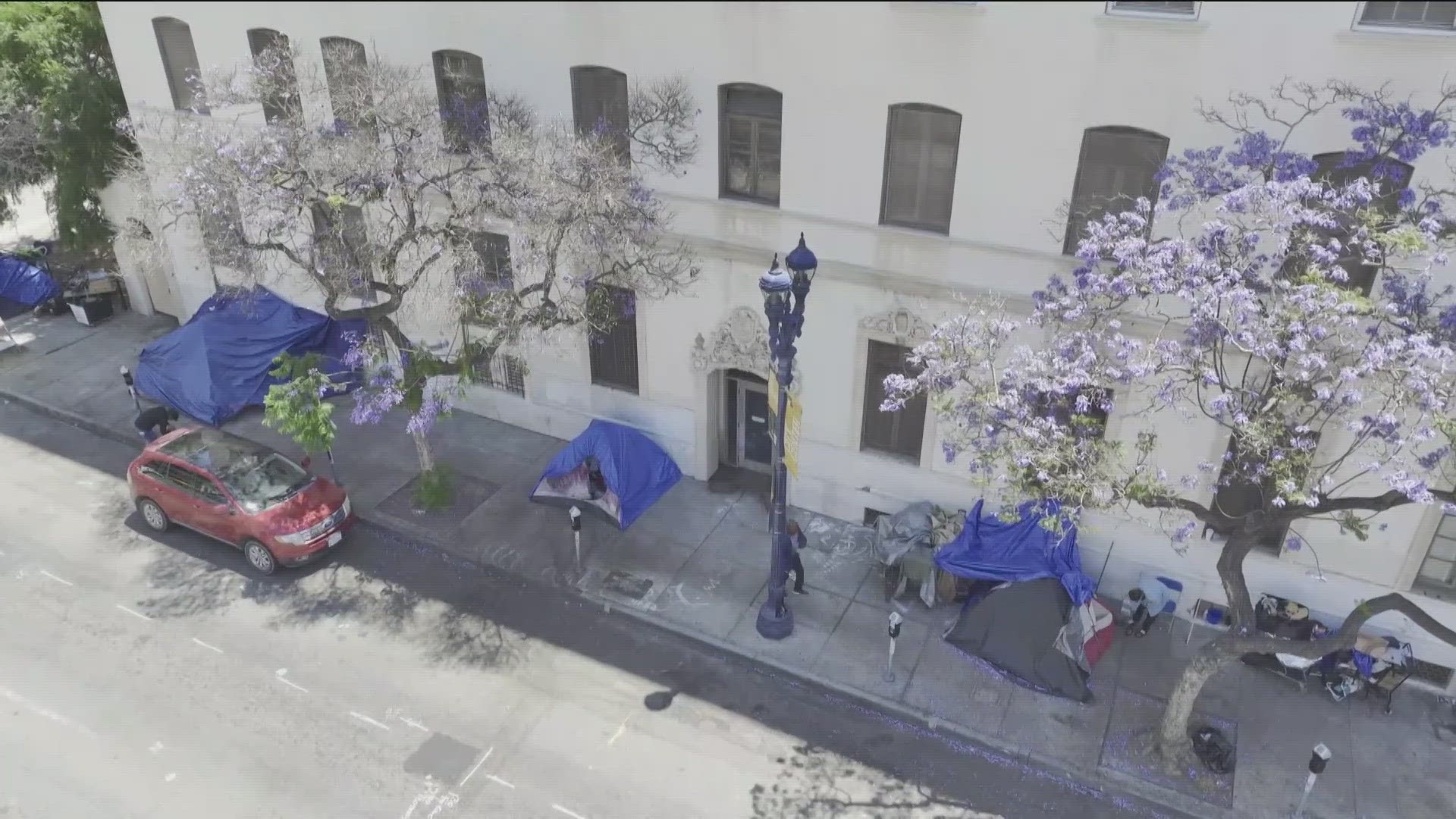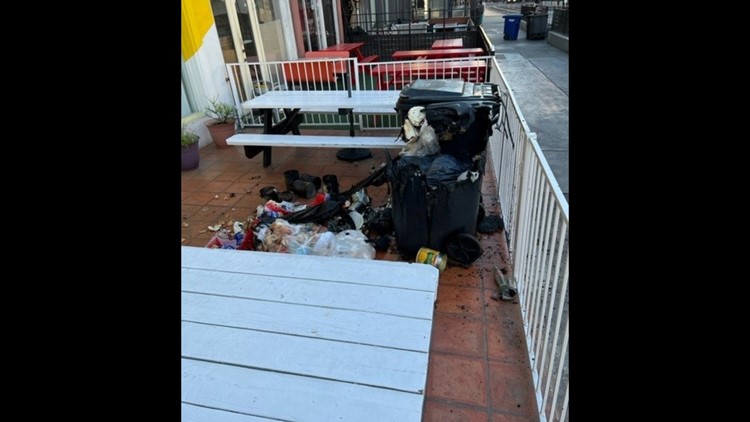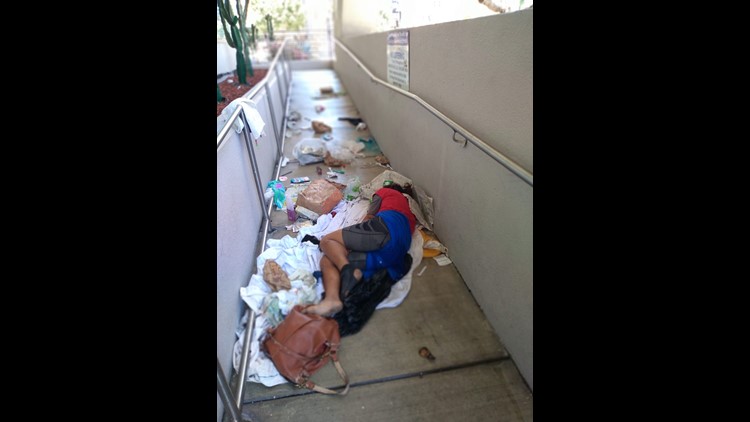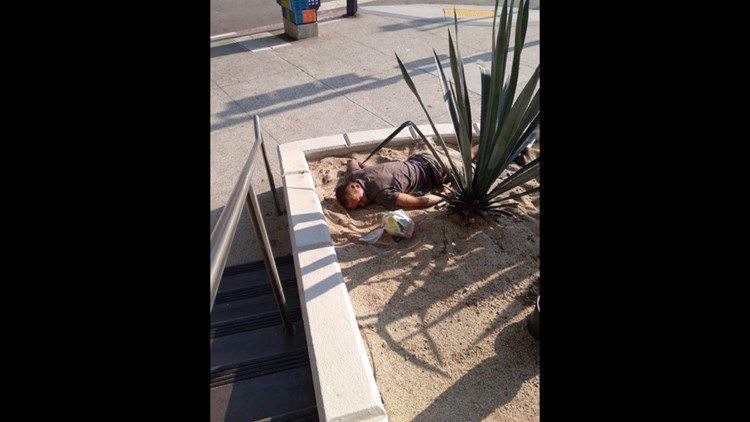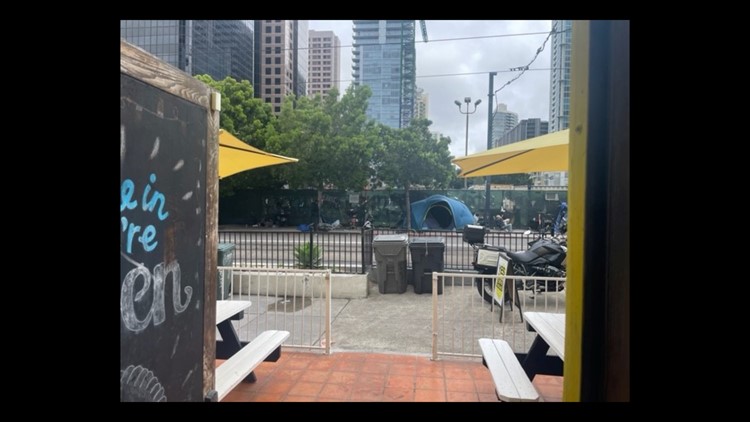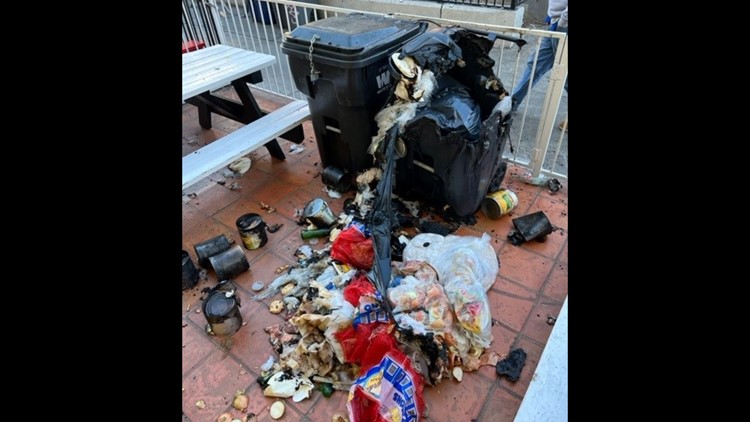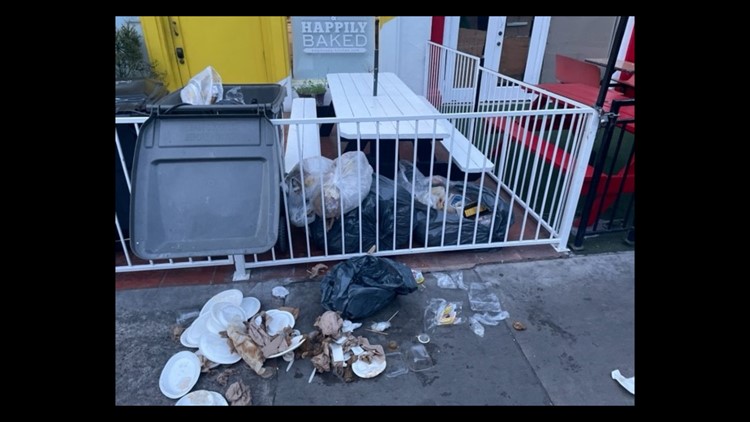SAN DIEGO — A group of residents and businesses in downtown San Diego say the city's homeless crisis has damaged businesses and impacted their quality of life.
They want the city to either clean up the sidewalks and streets or pay over $2.5 million in lost revenue and diminished property values and rental income.
On June 26, the group of seven businesses and a residential homeowners association served the city with a legal claim, a precursor to a lawsuit, demanding that the city act now or pay up.
They say the sidewalks in front of their homes and businesses in the four-block area from 8th Avenue to 11th Avenue from A Street to Market Street has turned into an "open-air drug zone" where the homeless people who take refuge there litter the sidewalks with trash and human waste, where residents, workers, and pedestrians have been forced to navigate through tent encampments and, at times, even dead bodies of those who have perished on the sidewalk.
Business owner and downtown resident John Cavuoto lives in the four-block area, which he calls "The Zone." Cavuoto is one of the claimants in the potential legal action.
“People say there’s a homelessness crisis in San Diego," said Cavuoto. "Well, I say there’s a drug and lawlessness crisis in San Diego. I think it’s unfortunate and I’ve tried to be compassionate but how about being compassionate for the business owners and property owners downtown.”
Cavuoto says he walks out to a street akin to a third-world country.
“You say you’re America’s finest city but people are defecating in the street. There’s an open-air drug market. There are dead bodies – this week – a dead body on 10th Street and that’s pretty regular. They’re not even looking over their shoulder when they’re breaking the law. They just know, nothing is going to happen to them.”
Homeless crisis in San Diego
The group's attorney, Craig Combs, says his clients have reported the issue on the city's Get It Done app. They have reached out to their elected leaders and to police but nothing has been done.
“They’ve used the app, they’ve made the calls, the cops come by but the police are limited in what they’re allowed to do,” Combs told CBS 8.
“These people who have restaurants that are just trashed every single day,” added Combs. "There are people just camped in front of the door, you can’t even get in the door so how can a business operate? Nobody wants to go to restaurants where they know that they are going to be accosted.”
The legal demand arrives days after the majority of San Diego councilmembers gave final approval on the Unsafe Camping Ordinance which will outlaw homeless encampments in and near city parks, adjacent to schools and transit stops, as well as elsewhere if shelter space is available.
In recent weeks, Mayor Todd Gloria has pushed hard in favor of the ordinance, which was first introduced by downtown council representative Stephen Whitburn.
Mayor Gloria says the ban is needed for the safety of residents and pedestrians whose access has been limited to sprawling homeless encampments as well as to ensure the safety of those living in the encampments.
In conjunction with the ordinance, Mayor Gloria announced the locations of two new safe sleeping sites where the unhoused can have access to a tent with a cot inside. The sites will also have restrooms, security, as well as access to services. The first site will have space for 136 tents and will be located at the City’s Central Operations Yard in Golden Hill. An additional 400-tent location will open in the coming months near Balboa Park.
Too little too late says advocate Michael McConnell.
McConnell says that while the safe sleeping sites are a step in the right direction, the number of beds is a drop in the bucket when addressing the overall shortage of shelter beds.
According to a June 13 city memo, the city currently has 1,784 city-funded shelter beds for the more than 6,500 people counted as homeless in this year's Point-in-Time count. The number of beds will be cut in half over the course of the year as 930 shelter beds will be taken offline due to the closure of six shelters citywide.
That, says McConnell is why the city could be on the hook for legal action from businesses and residents.
"Until the city finds safe places for people to live and until the city addresses the shortage of shelter beds then these lawsuits will continue, and San Diego taxpayers will be on the hook," said McConnell.
Meanwhile, residents such as Cavuoto say they have waited long enough.
“There’s been a lot of talk about this new ordinance about no camping on the street. It’s already illegal to do all of this stuff. It’s illegal to defecate in my driveway every day. It’s illegal to urinate in my driveway and my doorway. It’s illegal to shoot up drugs in the middle of the street. Take a look at Coronado. Not one tent on the sidewalk. Why? They won’t stand for it. But somehow downtown San Diego, it’s okay? No. It’s not okay with me.”
CBS 8 reached out to the Mayor's Office for comment. A spokesperson said the Mayor declined to comment at this time.

